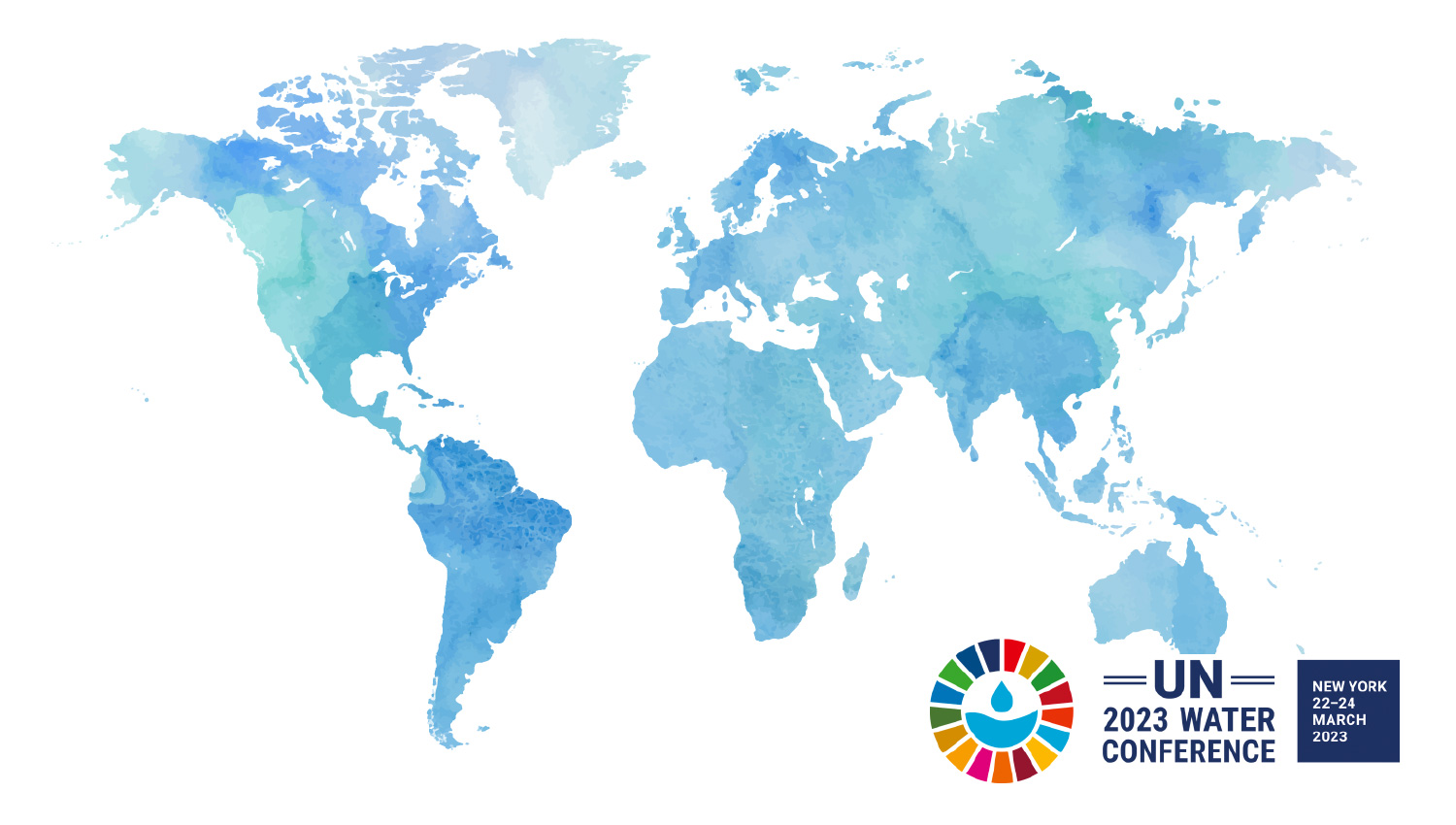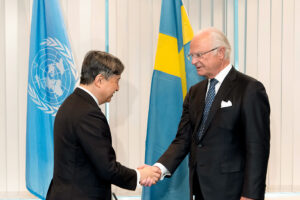Transforming the economics for water
The Global Commission on the Economics of Water presented its first report during the UN 2023 Water Conference. Some of the findings could be controversial and will most likely spark candid discussions about how we really value water. But this could mark the first step toward a very different view on the relationship between water and economics.
The Global Commission on the Economics of Water was launched a year ago to outline a new economics of water. Interest was great when the first results were shared at the UN 2023 Water Conference by the four co-chairs Professor Mariana Mazzucato, WTO Director-General Ngozi Okonjo-Iweala, Professor Johan Rockström and Singapore Senior Minister Tharman Shanmugaratnam.
In a session on 22 March, Mariana Mazzucato described the Commission’s proposal as a radical agenda and a call to action for a new economic thinking that treats water as a global common good. As Professor in Innovation and Public Value at the University College London, her research focused on how societies can drive innovation and solve common problems through the same kind of missions-driven approach that sent the first human to the moon in the 1960s.
“This should be a call to action for doing capitalism differently,” Mazzucato said, and emphasized that the proposed economics would create new opportunities in many different sectors, just like the space project fueled innovation in fields as diverse as nutrition, electronics and software. Now humanity should set out on a mission to tackle the global water crisis, which should spur a wave of innovation in many industries. “It’s really important for this call to action to remain positive and see the immense amount of opportunities that different actors – in the private, public and civil space – can do together.”
The scientific background was presented by Professor Johan Rockström, Director of the Potsdam Institute for Climate Impact Research. “We are now facing a completely new magnitude of the global water crisis,” he explained, describing its three dimensions. First, it is a human disaster, with over 2 billion people lacking safe water. Second, we see the climate extremes with water as victim number one – droughts, floods, and heat waves undermining livelihoods across the world. But to that must now be added a new and third dimension: “We are pushing the entire water cycle out of balance, with climate change shifting the freshwater supply. We can now no longer rely on the freshwater supply every year.”
“It's really important for this call to action to remain positive and see the immense amount of opportunities that different actors – in the private, public and civil space – can do together.”
This is an international perspective on water that is seldom reflected in political and economic discussions but of great significance. About half of the rainfall is dependent on functioning ecosystems, Johan Rockström explained, and oftentimes these ecosystems are located in other countries. The Amazon rainforest in Brazil is for example very important for rainfall over Argentina and Peru. And this has led to the realization that we all depend on the same water cycle and that water must be treated as a global common good.
The Commission on the Economics of Water is now working to identify barriers that prevent good water management and present solutions that will create the right incentives and innovations. The final report is due in 2024 but some initial ideas have been presented in the paper Turning the tide to inspire discussions. These include:
- Manage the global water cycle as a common global good.
- Adopt an outcomes-focused, mission-driven approach to water encompassing all the key roles it plays in human well-being.
- We must cease underpricing water.
- We must phase out some USD 700 billion of subsidies in agriculture and water each year, which tend to generate excessive water consumption and other environmentally damaging practices.
- We should establish Just Water Partnerships (JWPs) to enable investments in water access, resilience and sustainability in low- and middle-income countries, using approaches that contribute to both national development goals and the global common good.
- We must move ahead on the opportunities that can move the needle significantly in the coming decade.
- Underpinning all our efforts, we must reshape multilateral governance of water, which is currently fragmented and not fit for purpose.








